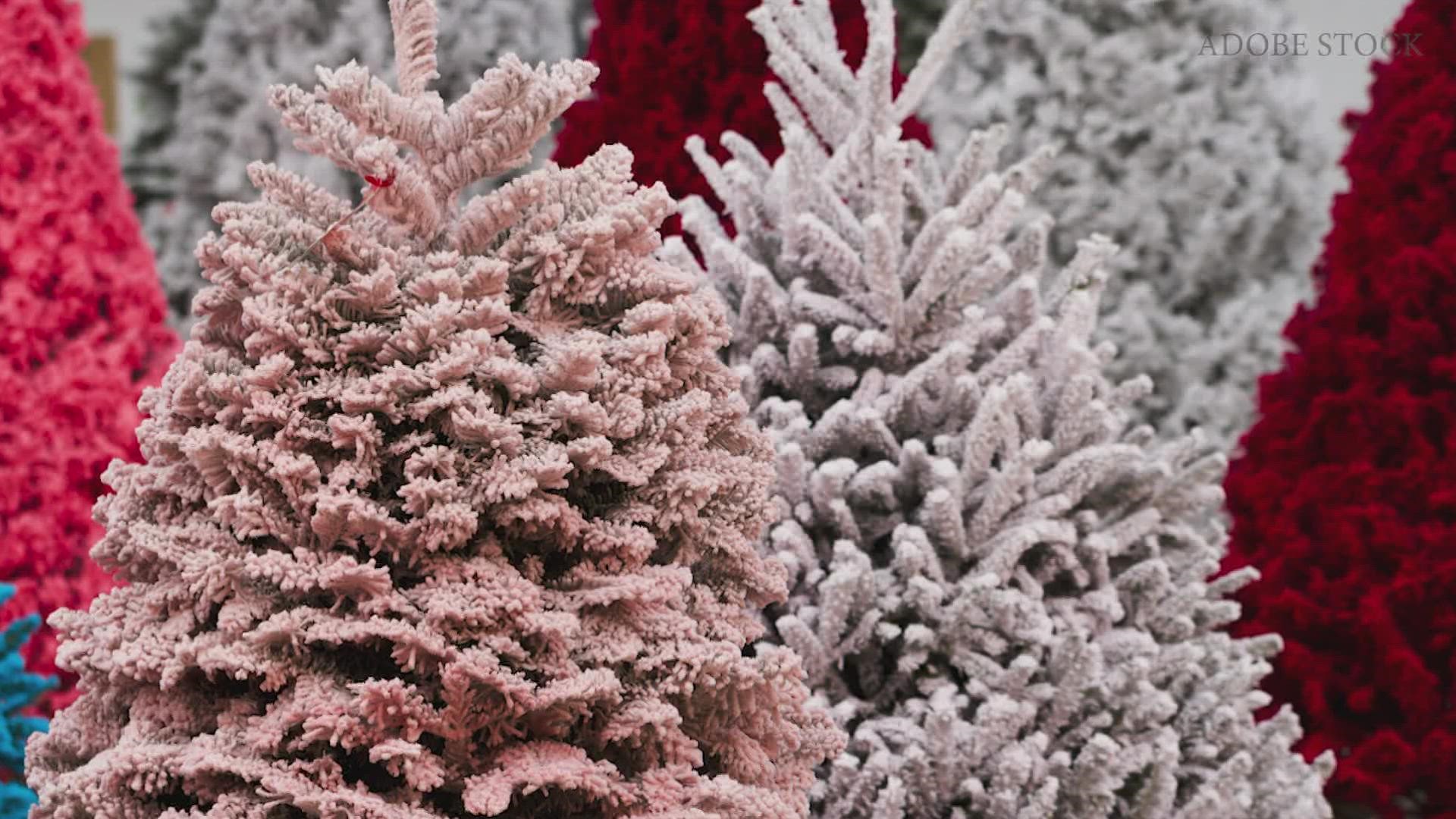TEXAS, USA — Artificial Christmas trees can be convenient and save you money, but are they safe? There is a post going around social media claiming they are made with toxic chemicals. Someone asked the Verify team to find out if that is true.
The Facebook post asks the consumer to consider the question, “Are artificial trees toxic?” It includes a claim that, “Most artificial trees are manufactured in China and made from PVC, a petroleum-based plastic, and lead.”
Adrienne asked the Verify team, “Are artificial Christmas trees toxic?”
We have three sources for this -- Dr. Taehyun Roh, assistant professor of Toxicology and Environmental Epidemiology at Texas A&M, Dr. Kathryn Tart, Dean of the University of Houston College of Nursing, and the National Christmas Tree Association.
First, some facts.
According to the U.S. Department of Commerce, “85% of fake Christmas trees in the U.S. are imported from China.”
The National Christmas Tree Association says those trees could, “contain metals and plastics, which can be a potential source of hazardous lead.”
“Each country has different regulations," Dr. Roh said. "We don’t know how much of these chemicals are used in these artificial trees, especially if they were imported from other countries, such as China."
Dr. Roh also said the flame retardants that are used on artificial trees could also pose a danger when the plastic breaks down.
“Flame retardants are endocrine disrupting chemicals, which mimic the hormones and upsets the normal hormones in our body. They also increase the risk of asthma, cancers, and diabetes."
The more enhanced or colorful that Christmas tree is, our experts say, the more likely it is to contain more chemicals.
“Children may be particularly vulnerable to the toxic effects of these chemicals because their brain and other organs are still developing, and their hand to mouth behavior and proximity to the floor increases the potential of children's exposure to these chemicals,” Dr. Roh said.
“Pay attention to your children and make sure they are not ingesting, eating, or licking (the tree)," said Dr. Tart. "Lead is like a metal. Once it's in your body, it’s almost impossible to get it out."
Dr. Tart says there are some things you should look for when shopping for an artificial Christmas tree.
“Pay attention to the color of the tree. I would be very cautious of trees that are, say pink, or flocked or shiny, because that could be a higher opportunity for lead to be in that PVC. Pay attention to the age of the tree. Sometimes, you might buy a tree at a garage sale, or somebody may pass down from generation to generation. I would get rid of those trees for sure,” Dr. Tart said.
So, are artificial Christmas trees toxic?
“It’s a really important question. I think it’s a question that we need to do more studies with,” Dr. Tart said.
If you do have an artificial Christmas tree, our experts suggest dusting it outdoors before you bring it into the house, use gloves when you handle it, and wash your hands after touching it.
Also, because a vacuum cleaner can blow dust particles into the air, and you can inhale it, they suggest wiping or mopping the area near and under the tree.
They also added it is a good idea to get a new tree every few years, write down the date you purchased it, and store it in its original box or container.
Dr. Roh said, if you plan to buy an artificial Christmas tree, you may want to consider a tree made of polyethylene (PE) or polypropylene (PP), which are safer than PVC.

